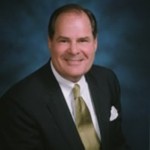 When commissioners to the PCUSA General Assembly woke up on 3 July and had their Pittsburgh Post-Gazette delivered to their hotel rooms they were greeted by the front-page headline “Presbyterian divestment proposal spurs heated debate here.” Speaking of what it called “impassioned testimony from American Jews, Palestinian Christians and Presbyterians,” the Chair of the Mission Responsibility Through Investment committee Brian Ellison was quoted as saying that “the church should not profit from investing … in companies whose actions conflict with church values.” A yeaar ago Ellison was appointed chair of the Covenant Network and at the time had stated “Having given all of my vocational life to the ministry of the Presbyterian Church (U.S.A.), I joined with others in celebrating last year’s constitutional changes permitting sessions and presbyteries to ordain all those whom God calls. ” Political and ordination activism often seems to coalesce to create a high voltage (some say toxic) atmosphere as the merits of positions are reduced to slogans and stereotypes.
When commissioners to the PCUSA General Assembly woke up on 3 July and had their Pittsburgh Post-Gazette delivered to their hotel rooms they were greeted by the front-page headline “Presbyterian divestment proposal spurs heated debate here.” Speaking of what it called “impassioned testimony from American Jews, Palestinian Christians and Presbyterians,” the Chair of the Mission Responsibility Through Investment committee Brian Ellison was quoted as saying that “the church should not profit from investing … in companies whose actions conflict with church values.” A yeaar ago Ellison was appointed chair of the Covenant Network and at the time had stated “Having given all of my vocational life to the ministry of the Presbyterian Church (U.S.A.), I joined with others in celebrating last year’s constitutional changes permitting sessions and presbyteries to ordain all those whom God calls. ” Political and ordination activism often seems to coalesce to create a high voltage (some say toxic) atmosphere as the merits of positions are reduced to slogans and stereotypes.
This was particularly evident when the Civil Union and Marriage Issues Committee concluded their debate of the day before with two proposals to be sent to the plenary session on Friday: one that changed the definition of marriage from between a woman and a man to between two people and the other calling for a two-year period of church-wide reflection on the meaning of marriage. The proposal to change the definition of marriage passed by a vote of 28 to 24 amid intense reflection on what its impact might be: the estimate of a thousand churches leaving the denomination had been bandied about. There was an atmosphere of crisis in the room as the vote was announced. Some regarded that as the price the church had to pay for being prophetic and pastoral, others saw it as a suicidal death wish.
That evening the various renewal groups joined as the Presbyterian Coalition to honour Terry Schlossburg. a long-time articulate and winsome advocate for Presbyterians Pro-Life and the broader concerns of those committed to Biblical faithfulness in the denomination. The mood of the evening was both celebratory but also sobering and solemn. Evangelicals who remain in the denomination feel isolated and abandoned as many have defected and their issues of conscience had been ignored or outvoted.  In that atmosphere John Huffman, veteran evangelical strategist, addressed the meeting. His fifty years as an ordained PC(USA) minister had given him a unique perspective. He made five points: (1) Everything has changed but nothing has changed. Ministry is tough. The heart of God is broken but He doesn’t give up. (2) No matter how hard we work things will never go back to where they were. The years have taken their toll and we cannot turn back the clock. (3) “I thank God for a great church history, a great theology, a great global mission heritage.” [It is estimated that there are today 92 million Christians in the world as a direct result of Presbyterian (USA) missionary activity.] (4) We have made progress in the past fifty years: there is greater hunger spiritually today than in 1962 when churches were pastor-driven and its activities and program predictable. The emphasis on small groups, the renewal of the church, discipleship training, are all advances which have created a more intentional community-centered church life. He included a list of inspirational leaders in the 1960s and 1970s that re-energized the laity. (6) “I love this church. It’s been good to me. Stay, fight on, serve, and be faithful.” It was a moving speech which I hope will be published.
In that atmosphere John Huffman, veteran evangelical strategist, addressed the meeting. His fifty years as an ordained PC(USA) minister had given him a unique perspective. He made five points: (1) Everything has changed but nothing has changed. Ministry is tough. The heart of God is broken but He doesn’t give up. (2) No matter how hard we work things will never go back to where they were. The years have taken their toll and we cannot turn back the clock. (3) “I thank God for a great church history, a great theology, a great global mission heritage.” [It is estimated that there are today 92 million Christians in the world as a direct result of Presbyterian (USA) missionary activity.] (4) We have made progress in the past fifty years: there is greater hunger spiritually today than in 1962 when churches were pastor-driven and its activities and program predictable. The emphasis on small groups, the renewal of the church, discipleship training, are all advances which have created a more intentional community-centered church life. He included a list of inspirational leaders in the 1960s and 1970s that re-energized the laity. (6) “I love this church. It’s been good to me. Stay, fight on, serve, and be faithful.” It was a moving speech which I hope will be published.
